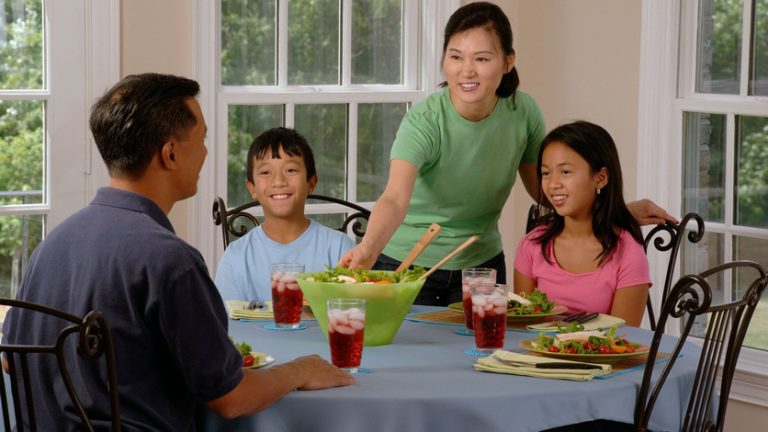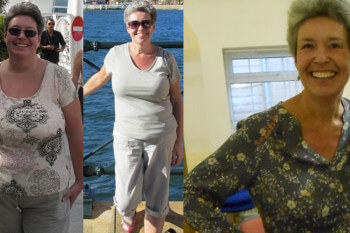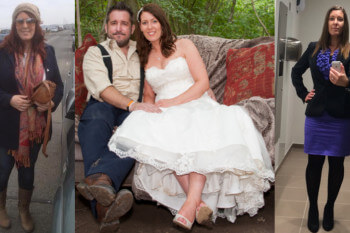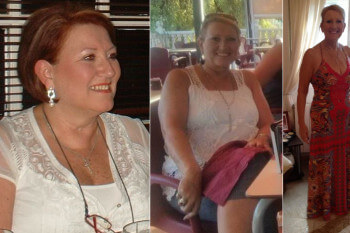Why fasting isn’t suitable for children
Although fasting can benefit all sorts of different people both for purposes of weight loss and improving general health, it is not recommended for children. This is because fasting reduces our level of a growth hormone known as IGF-1 (Insulin-like Growth Factor 1). As adults we don’t need so much IGF-1 because we are no longer growing. Adults often have more IGF-1 than they need because of the constant availability of food in the modern age and the tendency to snack – and it does us good to reduce the levels and swap our bodies from ‘growth mode’ to ‘repair mode’. In children however, this hormone is very important indeed and simply put, children should not be deliberately fasting.
How can you fast without influencing your children?
We all know that children look to their parents to learn correct behaviours and to imitate what they do, and eating habits are no exception. Parents should be teaching their children good, healthy eating habits and in no way encouraging fasting especially among younger children. While you may be able to explain to a teenager that you are fasting, why you are doing it and why it isn’t safe for them, impressionable young children won’t understand this. Using excuses such as “I’m just not hungry” or “I ate earlier” to disguise your fasting may be effective in the short term but over a longer period children may notice your strange eating patterns – kids aren’t stupid!
So, what can you do to protect your kids from being influenced by your fasting?
Firstly be careful not to talk about fasting or skipping meals, it’s not a habit to appear to endorse when they are young (but it is a good habit for children to learn not to snack between meals or eat sugary foods as a reward for good behaviour! When you turn down that cake or snack on your fast days, you can be teaching them good habits). When it comes to mealtimes, breakfast and dinner will likely be the main issues as lunch falls during school hours. If you’re splitting your calories into a couple of meals, breakfast and dinner would be the ideal way to do so if you’ve got kids, this way you can still eat something when they eat, without anything seeming particularly unusual. This still gives you a couple of good long fasting periods (approximately 12 hours from your dinner the night before until your fast day breakfast, another 12 hours until your fast day dinner and finally another 12 hours before you break your fast the next day) to reap some of the health benefits as well as the weight loss.
Dinner is probably the easiest of fasting meals to ‘get away with’ as there are lots of great fasting recipes out there you can cook for the whole family. Bulk out everyone else’s meal with larger portions or more carbs and leave those calorie-laden carbs off of your own plate in favour of a larger side of vegetables. Not only does this make fast day meal times easier (and less obvious) but also it can help with your fasting weight loss as without carbs to fuel you, your body will have to learn to enter fat burning mode (ketosis) to fuel itself instead. Win-win!
Breakfast may be a bit more tricky, especially as many of us prefer to go without any calories until our evening meal. You may well decide that keeping your kids in healthy habits is the priority and choose to enjoy a breakfast with them, if that is your norm. Eggs make for a great low calorie, low carb breakfast (approx 60-85 calories depending on size) which will stay with you for longer and are so quick to cook as well as versatile! Try a couple of them scrambled, or poach one and serve on a large mushroom with a few little tomatoes and/or a slice or two of ham for a healthy, low calorie breakfast. You might even find your kids get jealous of yours and would prefer it to a bowl of (sugar laden) cereal! Other options to keep your calories down as well as your appetite include a small bowl of porridge made with water or skimmed milk or a full fat yoghurt with a handful of berries (did you know you can buy them frozen? How convenient! Just put a handful in a bowl overnight to thaw for the next morning).
“But what about when they’re on school holidays and home for lunch?”, I hear you ask!
Well, my instinct here would be to say enjoy a lunch with them. Fasting is a way of eating for life, not a short term fix. If you’ve been doing it a while you’re probably much more in tune with your body and real hunger than you were before and also making smarter, healthier food choices for the most part. A week off of fasting here and there for the sake of your children isn’t going to ‘ruin’ anything. Don’t beat yourself up about it, don’t feel guilty. They’re the most important thing and if you have to put fasting on hold now and then for them, so be it! Of course, if you really feel you need to stick to it even when they’re home, salad is a good option for your lunch – you can have loads for very few calories indeed.
Finally, remember that the most important lessons for your children come from what you do the majority of the time. If you’re following 5:2 then for most of the week you can make it clear to your kids that you eat good, healthy food (at least for the most part – we’re all allowed some treats!) in sensible portions. While your kids are still young or while you get used to finding ways to keep them away from the notion of fasting it might be best not to consider 4:3 or ADF (alternate day fasting), which involve more fasting days.
What about family holidays?
As I touched on in earlier in the article, I think family holidays are another thing which merit a break from fasting if you’ve got young kids and would struggle to hide it. If it’s a long break and you really feel you need to keep fasting you might want to consider doing just one fast day a week and aim to maintain or swapping to a feeding window method such as 16:8, where you only eat within an 8 hour window each day – though this amounts to skipping breakfast, which isn’t always possible or desirable especially if it’s an all inclusive holiday. I would always advise aiming to maintain on holiday as opposed to trying to lose weight, so if you can’t fast then just try to be aware of how much you’re eating, practise some calorie balancing and try not to snack throughout the day every day.
What can I tell them about my fasting and are there any lessons I can teach them through it?
No doubt eventually your kids are going to notice that you’re getting smaller. They may even cotton on to your low calorie days. In these cases it’s important not to teach them to obsess about weight so rather than focussing on it being for your weight loss, make it clear that you are trying to get healthier (especially so you can be more active with them!) and be sure to keep a positive body image too.
I’ve seen some people describe their fast days as ‘diet days’ which may work with slightly older children, especially if you have tried various diets over the years and they have been aware of it. You could also explain your fast days as being ‘treat-free’ days or ‘extra healthy days’ where you don’t eat sweets or chocolate etc. This could be a good habit for them to pick up on, without being a very low calorie day of course.
With the increasing issue of childhood obesity, some of the habits you learn from fasting can actually be beneficial to your children such as teaching them not to snack between meals and not using food (particularly sugary treats) as a reward. If your child is overweight then a simple increase in between meal and overnight fasting (eg, encouraging them not to have snacks between meals and before bedtime) is unlikely to do any harm and may help them to keep their weight under control.
If your kids are fully grown or approaching that age, the idea of skipping a meal from time to time if not hungry shouldn’t necessarily be opposed. Many of us were made to eat breakfast in our teens and had the ‘breakfast is the most important meal of the day’ belief instilled in us but have since learned it isn’t always necessary and in fact can lead many of us to feel hungrier (and therefore snack more) during the day. Learning that we don’t have to eat just because it is ‘meal time’, and recognising true hunger is an important lesson I’m sure many of us wish we had learned sooner and if you can pass this on to your older children this is unlikely to do any harm!
At the end of the day, you know your kids best and if you feel they are old enough and mature enough to understand the way of eating you have chosen, then by all means be honest and open about it, maintaining at all times that it is only safe for adults.
The most important things to remember about fasting when you have kids is to put their well-being first and foremost and to be able to continue to have fun with them, even if this means missing a fast or two!











